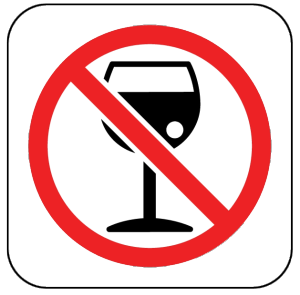Contributor: Crystal Karges, MS, RDN, IBCLC, Special Projects Coordinator at Eating Disorder Hope/Addiction Hope
 Pain medications, whether over the counter or prescription drugs, are commonly used and accessed. According to the American Academy of Pain Medicine, prescription drugs are the second-most abused category of drugs in the United States, and prescription painkillers are considered a major contributor to the total number of drug deaths1.
Pain medications, whether over the counter or prescription drugs, are commonly used and accessed. According to the American Academy of Pain Medicine, prescription drugs are the second-most abused category of drugs in the United States, and prescription painkillers are considered a major contributor to the total number of drug deaths1.
Painkillers are often accessed with little thought or research into the possible side effects that may result with this drug use. Whether obtained over the counter or from a loved one’s medicine cabinet, any painkiller medication should be taken with caution and under the guidance of a doctor.
Side Effects to Consider
Some individuals may come to think that painkillers, which are accessible over the counter, may not be dangerous or as severe as taking prescription painkillers. While prescription painkillers are typically more potent than over the counter painkillers, this does not mean that there are not any side effects that should be considered before ingesting any kind of medication.
Perhaps some of the most overlooked facts about painkillers, whether prescription or over the counter, are the warning labels on the side of the bottle. As mandated by the Food and Drug Administration, painkiller medications must list potential side effects, recommended dosing, maximum safe dosage and possible warning for other substance interactions, such as alcohol.
Understanding the Interactions Between Painkillers and Alcohol
 Many people do not fully understand or are completely aware of the possible interactions between painkillers and alcohol. The combination of alcohol and painkillers can lead to dangerous side effects that can jeopardize an individual’s health and well being. Alcohol will typically intensify and increase side effects caused by painkillers.
Many people do not fully understand or are completely aware of the possible interactions between painkillers and alcohol. The combination of alcohol and painkillers can lead to dangerous side effects that can jeopardize an individual’s health and well being. Alcohol will typically intensify and increase side effects caused by painkillers.
For example, opioid-based painkillers, such as Oxycontin, may cause low blood pressure and drowsiness in the person taking this prescription medication. If this drug is taken along with alcohol, these side effects can be increased.
Alcohol in the body can slow the metabolism and clearance of drugs in the system, which would cause drugs to remain the bloodstream for a longer period of time and at higher concentrations.
The Consequences of Combining Painkillers and Alcohol
Whether intentional or not, the consumption of alcohol with painkillers can result in detrimental consequences and can even prove fatal. If you or someone you love takes painkillers, prescription or over-the counter drugs, be sure to carefully review safety guidelines before consuming. If you are unsure about any potential interactions with the medication you are taking and alcohol, be sure to discuss with your doctor or pharmacist.
Perhaps you or a loved one is dealing with alcohol abuse or an addiction to alcohol. If this is the case, it important to seek out the care and treatment you need to recover. Taking painkillers while struggling with an addiction to alcohol can put your life at risk and exacerbate any complications you may currently be experiencing.
Working with an experienced health care professional can be life-saving and help you address any underlying issues that may have influenced the development of an addiction.
Reaching Out to Someone for Help
 Taking painkillers with alcohol may seem harmless. Some individuals may mix these substances intentionally to induce a “high” or to numb out. However, the physical symptoms that may result from the mixing of alcohol and painkillers can be life-altering and debilitating.
Taking painkillers with alcohol may seem harmless. Some individuals may mix these substances intentionally to induce a “high” or to numb out. However, the physical symptoms that may result from the mixing of alcohol and painkillers can be life-altering and debilitating.
If you find yourself falling into a pattern of mixing alcohol and painkillers, be sure to reach out to someone you trust to confide about this struggle.
Working with professionals who specialize in addiction can help assess your situation and recommend a plan of care tailored to your individualized needs.
In severe cases, you may need more acute treatment, which can help address and manage any physical symptoms that may be present. Other forms of care that may be helpful include outpatient psychotherapy or an intensive outpatient treatment program. Know that there is help and treatment available to you to support your recovery from a co-occurring addiction.
Community Discussion – Share your thoughts here!
Have you or someone you love overcome an addition to prescription painkillers and alcohol? What has helped you through the challenges you might have faced, and what encouragement might you offer to others who may be in a similar battle?
Last Updated & Reviewed By: Jacquelyn Ekern, MS, LPC on June 19th, 2015
Published on AddictionHope.com
